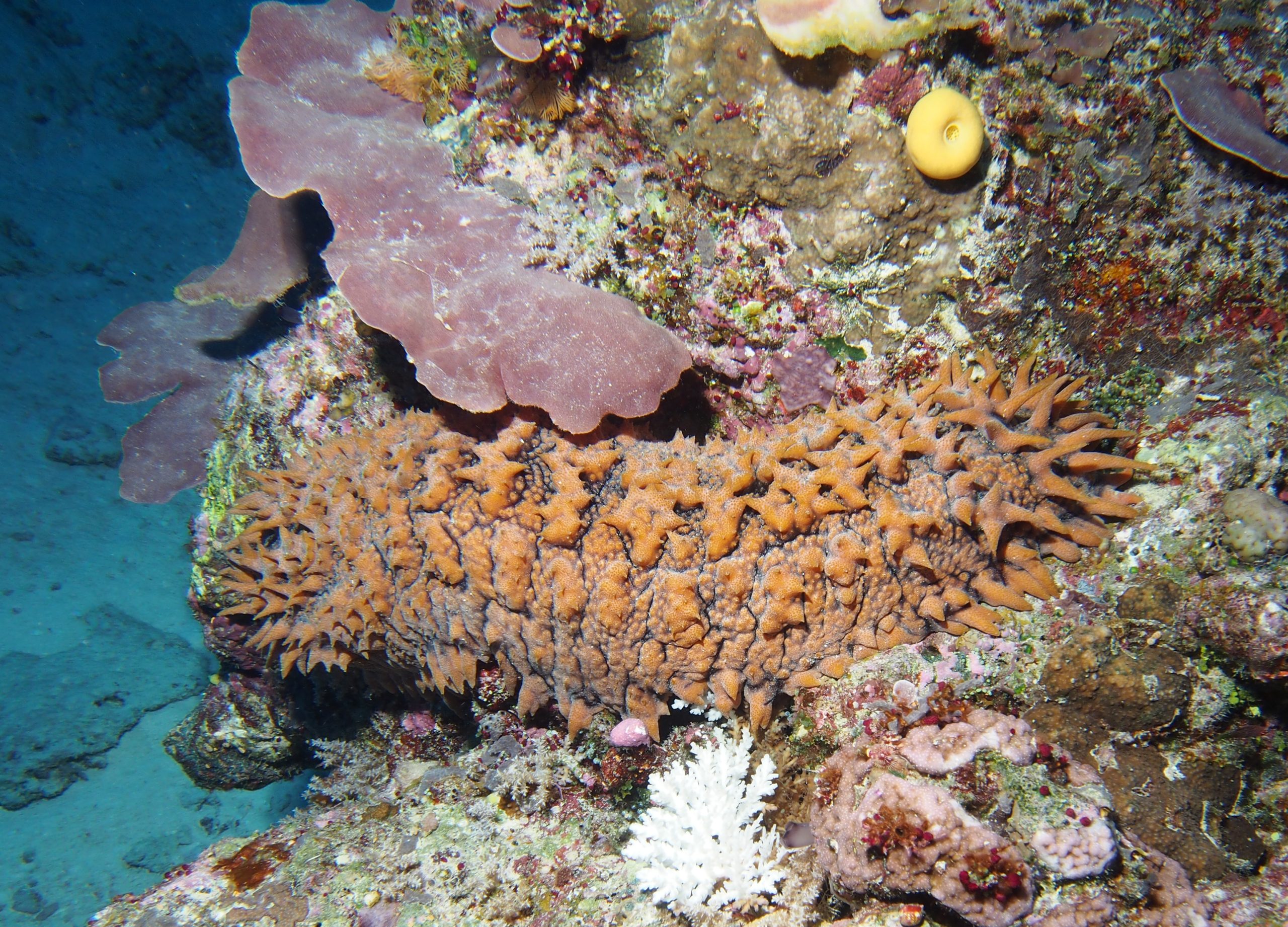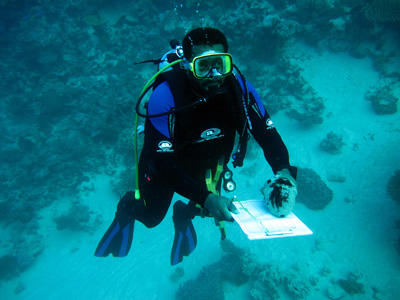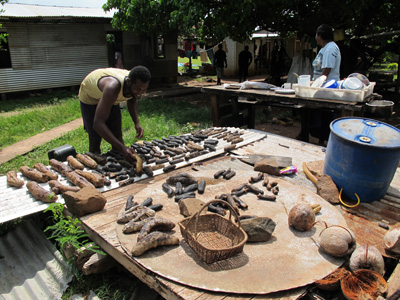They have cylindrical bodies, leathery skin, and generally are peculiar looking creatures. You may or may not have noticed these slow moving animals on the bottom of the sea floor. They are sea cucumbers, and they are considered a delicacy in most Asian countries. They are used fresh or dried in many culinary dishes.

In Fiji, sea cucumbers or sasalu are harvested and sold to Asian countries. With a market value upwards of $50 (US) each, they are highly prized for anyone who can find them. However, herein lies the problem. With such high incentives, Fijians are now overharvesting these vulnerable, slow-moving sea cucumbers (about 10 feet an hour) that don’t stand a chance against speedy free divers.
Sea cucumbers are sometimes called the “earthworms of the sea,” as they cultivate the seafloor in much the same manner as earthworms cultivate the soil. Tube feet around the mouth are covered with a sticky mucus that traps detritus (decaying matter) from the seafloor’s sediment. In areas where overfishing has reduced the population of sea cucumbers, the seafloor hardens and bacteria accumulates which has harmful effects on the adjacent coral reef.

Sea Cucumber Surveys Aim to Provide Information to Local Communities
This is where the Fiji Department of Fisheries, University of South Pacific and Wildlife Conservation Society come in. For several years these entities have been conducting sea cucumber surveys throughout Fijian waters. Now, representatives from each organization have joined the Global Reef Expedition to conduct sea cucumber surveys of the remote islands we are visiting and communicate with the local villages in the Lau Province.

Ron Vave, Senior Scientific Officer at the University of the South Pacific explains, “We are really excited to be able to conduct sea cucumber surveys in these remote areas and gather more information. In turn, we will be able to communicate the current status of local species, and provide recommendations for management to the local communities. They will then have the most up to date information so they can make informed decisions that benefit their communities now and into the future.”
Stay tuned for more information on sea cucumber surveys and overfishing.
(Photos/Images by: 1 Andrew Bruckner; 2,3 Stacy Jupiter)
To follow along and see more photos, please visit us on Facebook!


